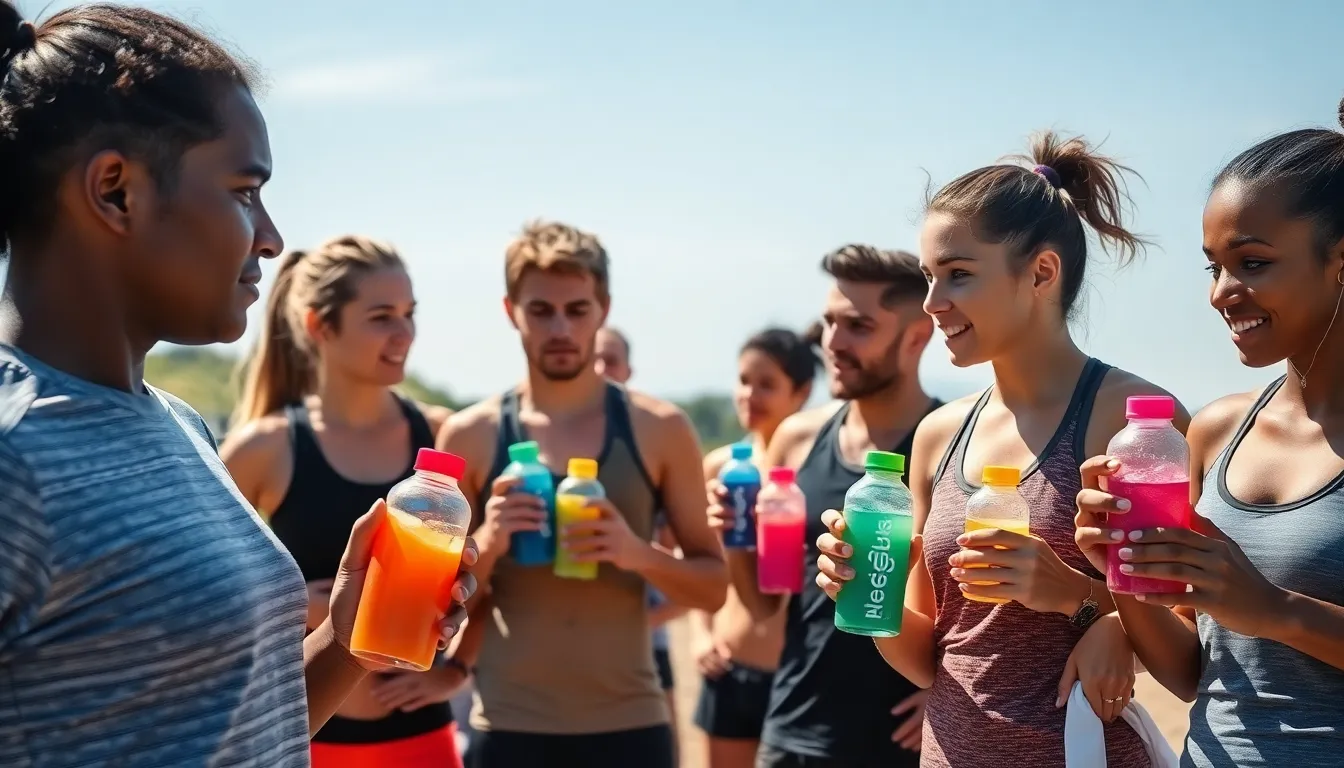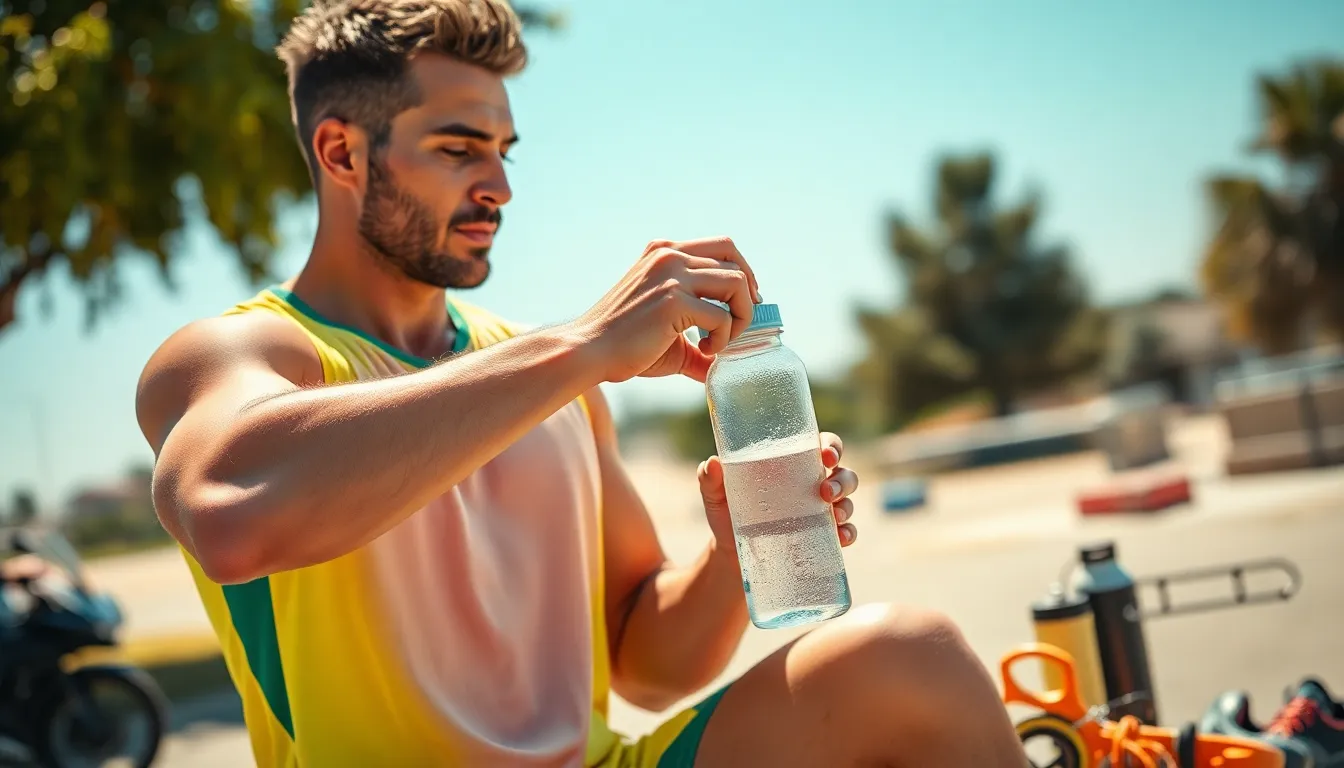Electrolytes play a crucial role in maintaining hydration and overall health, not just for horses but for humans too. As athletes and fitness enthusiasts seek effective ways to replenish lost minerals, many are curious about the safety and efficacy of horse electrolytes for human consumption. While these products are designed for equine needs, they often contain similar ingredients to those found in human electrolyte drinks.
Understanding the differences and similarities between horse and human electrolytes can help individuals make informed choices. With the right knowledge, they can explore whether these equine formulations can offer a viable alternative for hydration and recovery. This article delves into the safety, benefits, and potential drawbacks of using horse electrolytes for human use, providing clarity on a topic that’s gaining traction in health and wellness circles.
Table of Contents
ToggleUnderstanding Horse Electrolytes
Horse electrolytes play a critical role in hydration and maintaining health. These formulations help to replace essential minerals lost through sweat and exertion, benefiting both horses and humans engaging in physical activity.
Definition and Purpose
Horse electrolytes consist of minerals that facilitate fluid balance, muscle function, and nerve signaling. These products aim to replenish vital nutrients such as sodium, potassium, calcium, magnesium, and chloride lost during exercise or heat stress. For humans, consuming horse electrolytes can support hydration, especially during intense workouts or endurance events, similar to how humans use specialized electrolyte drinks.
Common Ingredients
Horse electrolyte formulations often include:
- Sodium: Regulates fluid balance and supports nerve function.
- Potassium: Aids muscle function and helps prevent cramping.
- Calcium: Essential for muscle contractions and bone health.
- Magnesium: Supports muscle recovery and overall cellular function.
- Chloride: Works with sodium to maintain osmotic balance.
These ingredients commonly overlap with those found in human electrolyte drinks, presenting an option for individuals seeking alternative hydration solutions.
Safety of Horse Electrolytes for Humans

Using horse electrolytes for human consumption presents both potential risks and benefits. It’s essential to understand these factors to ensure safe hydration practices.
Potential Risks
Horse electrolytes can contain higher concentrations of certain minerals, like sodium and potassium, compared to human formulations. Excessive intake may lead to electrolyte imbalances, resulting in symptoms like nausea, dizziness, or increased heart rate. Some horse electrolytes may also contain additives or flavorings unsuitable for human consumption. Individuals with pre-existing medical conditions, such as kidney issues or heart problems, should consult a healthcare provider before using these products. Monitoring intake is crucial to avoid undesirable side effects associated with imbalanced electrolyte levels
Benefits for Human Use
Horse electrolytes offer several advantages for human hydration, particularly during intense physical activity. They often include key ingredients like sodium, potassium, calcium, magnesium, and chloride, which help replenish essential minerals lost through sweat. The formulations can support improved fluid balance, enhance muscle function, and aid in nerve signaling. Many athletes prefer these products due to their fast-acting hydration properties. Additionally, the availability of horse electrolytes can provide a cost-effective alternative for individuals engaged in endurance sports or demanding workouts.
How to Use Horse Electrolytes
Using horse electrolytes requires careful consideration of dosage and recommended practices to ensure safety and effectiveness.
Proper Dosage
Proper dosage of horse electrolytes varies based on need and individual factors. Heed the following guidelines:
- Start low: Begin with half the recommended dose to assess tolerance.
- Follow instructions: Refer to the product label for specific dosage recommendations.
- Monitor intake: Keep an eye on hydration levels and adjust accordingly.
- Consult professionals: Seek advice from a healthcare provider or nutritionist, especially if pre-existing conditions exist.
Recommended Practices
Adopting recommended practices enhances the benefits of horse electrolytes. Consider these steps:
- Dissolve properly: Mix the electrolytes in water according to the product instructions.
- Plan timing: Use horse electrolytes before, during, or after intense physical activity for optimal hydration.
- Combine with food: Pair electrolytes with food to improve absorption and minimize potential gastrointestinal issues.
- Stay mindful of other sources: Account for other dietary sources of electrolytes to prevent excessive intake.
Following these guidelines ensures safe and effective use of horse electrolytes for human hydration needs.
Alternatives to Horse Electrolytes
Individuals seeking alternatives to horse electrolytes can find various human-safe options that effectively support hydration and replenishment of essential minerals. These alternatives include specifically formulated products and natural sources rich in electrolytes.
Human-Safe Electrolytes
Human-safe electrolyte drinks contain comparable ingredients to horse electrolytes but with adjusted concentrations suited for human physiology. Common brands include:
- Gatorade: Provides a balance of sodium, potassium, and carbohydrates to replenish lost electrolytes during exercise.
- Electrolyte tablets: Convenient for on-the-go hydration, these tablets dissolve in water and often deliver sodium, potassium, and magnesium.
- Coconut water: A natural alternative, coconut water offers potassium and magnesium, making it a popular choice for hydration.
These products ensure safety while enhancing hydration for athletes and fitness enthusiasts.
Natural Sources of Electrolytes
Natural foods offer essential electrolytes without the additives found in some commercial products. Rich sources include:
- Bananas: High in potassium, bananas help maintain fluid balance and support muscle function.
- Spinach: Packed with magnesium, spinach promotes overall health and assists in muscle recovery.
- Nuts: Almonds and cashews provide magnesium and phosphorus, essential for energy production.
- Broccoli: A good source of calcium, broccoli supports bone health and proper muscle function while being low in calories.
Incorporating these foods into a balanced diet can effectively maintain electrolyte levels naturally.
Exploring the world of horse electrolytes reveals their potential benefits for human hydration and recovery. While these formulations share many ingredients with human electrolyte drinks they may not suit everyone due to differing concentrations. Athletes seeking effective hydration solutions can consider horse electrolytes but should do so with caution.
It’s crucial to monitor dosages and consult healthcare professionals if there are any underlying health concerns. For those looking for alternatives human-safe electrolyte drinks and natural food sources can provide a balanced approach to maintaining hydration. Ultimately making informed choices about hydration can enhance performance and overall well-being.



